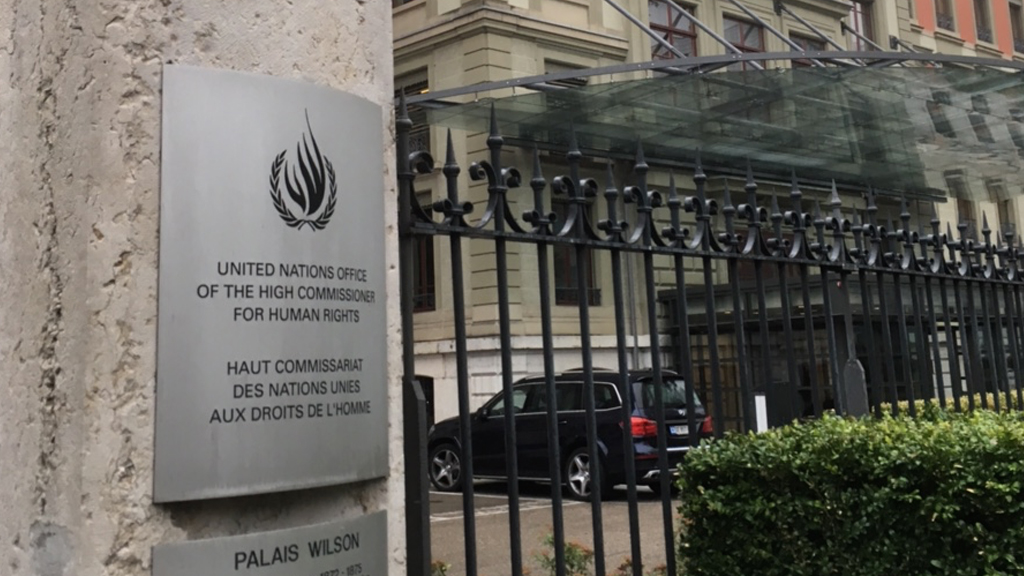“Authorities however continue to arbitrarily detain civil society actors, as documented recently by the UN Working Group on Arbitrary Detention, following its visit to Azerbaijan. Azerbaijan’s practice of arbitrary detention shows that the judiciary is not independent and that the authorities do not respect basic principles of the rule of law” commented Florian Irminger, the Human Rights House Foundation (HRHF)’s Head of Advocacy at the opening session of the UN Human Rights Committee on Monday 17 October, which can be watched in the video above.
In its report, entitled “Update on the Human Rights Situation in Azerbaijan”, submitted to the UN Human Rights Committee, HRHF stated that “There is no indication that the human rights situation in Azerbaijan has improved: the release from prison of leading civil society figures is not a sign of systemic change, but a signal of the leverage the international community has to ensure such releases.”
The Ministry of Justice of the Republic of Azerbaijan ordered the Human Rights House Azerbaijan to cease all its activities in March 2011. Since then, HRHF has campaigned with partner non-governmental organisations (NGOs) to highlight the continuous deterioration of the human rights situation in Azerbaijan, especially with regard to freedom of expression, association, and assembly, and the right to be a human rights defender. As HRHF documented in its report with Freedom Now, “During 2014, the authorities rounded up the county’s most well-known civil society leaders and audaciously even targeted those who monitored and documented the cases of political prisoners.”
On 26 September, Azerbaijan held a new constitutional referendum that expanded the presidential powers. “The outcome of the referendum is completely overshadowed by the events that preceded and accompanied it. The authorities silenced independent voices who criticised the process and showed that they have not abandoned the ‘revolving door policy’ of politically motivated arrests, in which the authorities release some people while arresting others” commented Ane Tusvik Bonde, Regional Manager for Eastern Europe and Caucasus, HRHF.
In September, the Special Rapporteur on the situation of Human Rights Defenders Michel Forst, on a visit to the country, called on Azerbaijan to “rethink [its] punitive approach to civil society.”
The UN Human Rights Committee meets in Geneva and holds three sessions per year. All State parties have the obligation to submit regular reports to the Committee on how the the International Covenant on Civil and Political Rights (ICCPR) is being implemented. The Committee examines each report and addresses its concerns and recommendations to the State party in the form of “concluding observations.”
The ratification of the ICCPR by States indicates to the international community the State’s commitment to undertake the obligations under the treaty. The ICCPR was ratified by Azerbaijan in 1992.
Documents:
- HRHF submission to the Human Rights Committee (2016)
- NGO Report on civil and political rights in Azerbaijan
- Amid Azerbaijan’s suppression of public debate, no vote is free and fair
- Azerbaijan: “Rethink punitive approach to civil society”
- HRHF Statement at Human Rights Council September 2016
- Sports for rights letter of concern August 2016
- November 2015 CAT review of Azerbaijan
- Previous review in 2009: UN Human Rights Committee begins its review of Azerbaijan
More on the story





